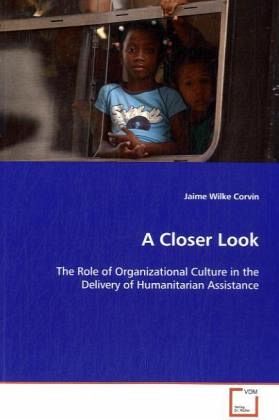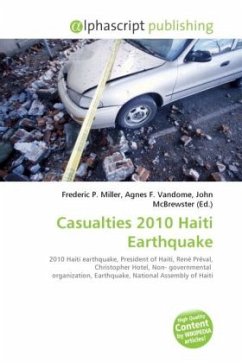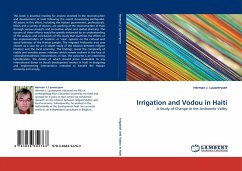
A Closer Look
The Role of Organizational Culture in the Delivery of Humanitarian Assistance
Versandkostenfrei!
Versandfertig in 6-10 Tagen
52,99 €
inkl. MwSt.

PAYBACK Punkte
26 °P sammeln!
The international community has seen a dramatic increase in the complexity of aid operations, with increasing numbers of donors participating in humanitarian aid endeavors. Therefore, it is essential to determine factors that contribute to successful aid delivery. In an effort to guide more effective and efficient operations, this study investigated organizational culture in three distinct types of HAOs: the U.S. military, the International Federation of the Red Cross, and a sampling of local NGOs in Haiti. This work lends support to the belief that organizational culture impacts the delivery ...
The international community has seen a dramatic
increase in the complexity of aid operations, with
increasing numbers of donors participating in
humanitarian aid endeavors. Therefore, it is
essential to determine factors that contribute to
successful aid delivery. In an effort to guide more
effective and efficient operations, this study
investigated organizational culture in three
distinct types of HAOs: the U.S. military, the
International Federation of the Red Cross, and a
sampling of local NGOs in Haiti. This work lends
support to the belief that organizational culture
impacts the delivery of aid. Findings also yielded
support for collaborative efforts, while
highlighting gaps between policy and practice and
stressing the importance of bridging organizational
differences more effectively. Unfortunately, almost
ten years after Hurricane Mitch, countless pledges to
humanitarianism and the determination of the need
for collaboration, results indicate that the
international community continues to grapple with
these issues.
increase in the complexity of aid operations, with
increasing numbers of donors participating in
humanitarian aid endeavors. Therefore, it is
essential to determine factors that contribute to
successful aid delivery. In an effort to guide more
effective and efficient operations, this study
investigated organizational culture in three
distinct types of HAOs: the U.S. military, the
International Federation of the Red Cross, and a
sampling of local NGOs in Haiti. This work lends
support to the belief that organizational culture
impacts the delivery of aid. Findings also yielded
support for collaborative efforts, while
highlighting gaps between policy and practice and
stressing the importance of bridging organizational
differences more effectively. Unfortunately, almost
ten years after Hurricane Mitch, countless pledges to
humanitarianism and the determination of the need
for collaboration, results indicate that the
international community continues to grapple with
these issues.












